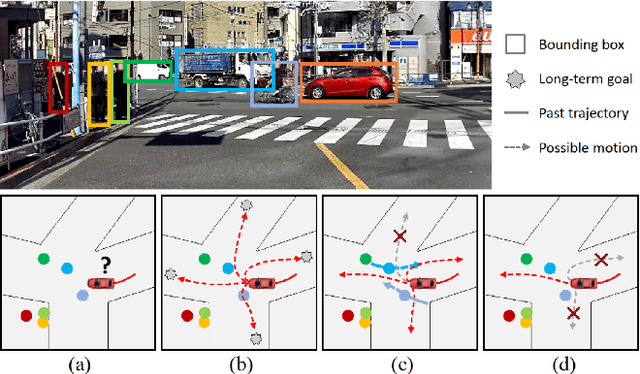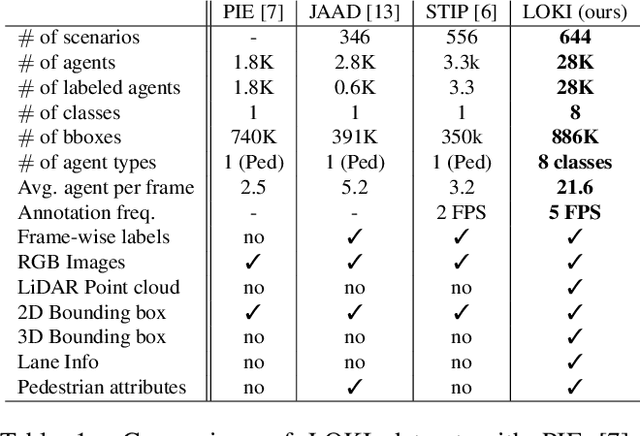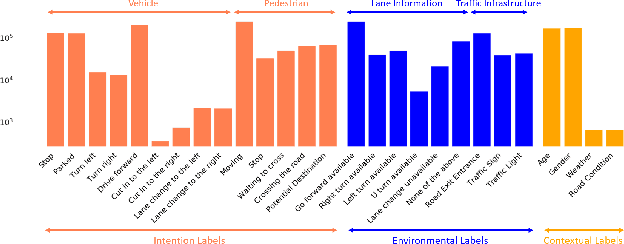LOKI: Long Term and Key Intentions for Trajectory Prediction
Paper and Code
Aug 18, 2021



Recent advances in trajectory prediction have shown that explicit reasoning about agents' intent is important to accurately forecast their motion. However, the current research activities are not directly applicable to intelligent and safety critical systems. This is mainly because very few public datasets are available, and they only consider pedestrian-specific intents for a short temporal horizon from a restricted egocentric view. To this end, we propose LOKI (LOng term and Key Intentions), a novel large-scale dataset that is designed to tackle joint trajectory and intention prediction for heterogeneous traffic agents (pedestrians and vehicles) in an autonomous driving setting. The LOKI dataset is created to discover several factors that may affect intention, including i) agent's own will, ii) social interactions, iii) environmental constraints, and iv) contextual information. We also propose a model that jointly performs trajectory and intention prediction, showing that recurrently reasoning about intention can assist with trajectory prediction. We show our method outperforms state-of-the-art trajectory prediction methods by upto $27\%$ and also provide a baseline for frame-wise intention estimation.
 Add to Chrome
Add to Chrome Add to Firefox
Add to Firefox Add to Edge
Add to Edge